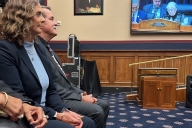You have /5 articles left.
Sign up for a free account or log in.
With the anniversary of the Virginia Tech killings fast approaching, campus crime remains a concern to many academic leaders, politicians and parents. A group of studies conducted by scholars at the University of Southern California (in many cases with a national focus) found considerable evidence of weak links in colleges' efforts to prevent crime and to deal with it when it happens.
Among the findings of the studies:
- Those who counsel victims of sexual assaults on campus (and many of the victims themselves) feel disconnected from the campus judicial systems designed to adjudicate these cases on many campuses, in part because of a tendency of those offices to view the process as "educational," not judicial.
- Student affairs officials have a less than complete understanding of the Clery Act, the primary law governing reporting of campus crime.
- A small subset of male students pose the most significant threat to women on their campuses, and these men are not necessarily those who have been the focus of many colleges' educational programs designed to prevent assaults and rapes.
Much of the data for the studies was collected just prior to the Virginia Tech killings, and the researchers acknowledged that the tragedy no doubt increased awareness and changed policies on many campuses. But the researchers also said that they haven't seen evidence of major shifts in some of the policies and attitudes they found in their work. The findings were presented Wednesday at the annual meeting of the American Educational Research Association, in New York.
Different Perspectives on Sexual Assault Cases
Linda A. Fischer, an assistant professor of clinical education at Southern Cal, said she wanted to explore whether two key campus offices -- those that counsel victims of sexual assaults and those that adjudicate complaints -- are working in a complementary or contradictory manner. She found the latter. She based her work on in-depth interviews at 24 colleges and universities -- a range of four-year institutions -- where she could speak extensively with someone responsible for victim counseling and with someone responsible for handling complaints.
She found significantly differing points of view. While counselors focused their work -- and wanted their institutions focused -- on making victims feel supported and safe enough to continue their educations, those running campus judicial systems focused on the "educational process" of their work. In addition, she found that while many counselors are aware that many students who file complaints about sexual assaults have been in situations where they have been drinking or in some cases using drugs, this seems to pose an insurmountable challenge to judicial systems on campus, and that the presence of alcohol or drugs in a case seems to doom it.
Fischer said that one reason for these disconnects is that many campus judicial systems were set up to deal with plagiarism or cheating allegations -- academic matters -- and were never envisioned as bodies that would handle these sorts of cases. She said it was important that more training be provided, especially about biased ideas that suggest a crime couldn't have taken place if a woman was drinking.
Asked if her findings suggested that more colleges should -- as many have done -- turn over such cases to local police authorities, Fischer said that was one option, but that she believed victims should have more than one place to take a complaint.
Melora Sundt, associate dean of Southern California's School of Education, added that there were many cases in which victims were not comfortable going to local police authorities, or where local police would take too long to investigate, so just turning over the duty wouldn't work. She also noted that many campus judicial systems once took the view of "kick them out" when finding a violation of a campus code. On matters related to sexual assault, she said it was time to move back in that direction, and away from the idea that every situation could be an opportunity for more education.
The Clery Act -- What's That?
The Jeanne Clery Disclosure of Campus Security Policy and Crime Statistics Act is the federal legislation that requires students to be informed promptly of situations that could pose dangers and colleges to file annual reports with data on different kinds of campus crime. The legislation is named for a Lehigh University freshman who was raped and murdered in her dormitory room in 1986 and whose family then crusaded for safer campuses and more information about crime on campuses.
Kevin T. Colaner, associate vice president for student services at California State Polytechnic University at Pomona, wanted for his USC dissertation to see how much student affairs professionals knew about the law. So he conducted a survey in which he received responses from 1,803 professionals at four-year colleges who are members of one of two national organizations for student affairs. One finding he found particularly surprising, even pre-Virginia Tech, was that 67 percent said that they believed campus violence was only a small problem or very small problem, while only 4 percent viewed it as a large problem.
On the Clery Act, he gave the participants a test of questions about it, such as asking whether it applies to private institutions, whether a crime must result in a conviction to be covered by the act's reporting requirements, and whether a college can be kicked out of federal student aid programs for violating the law. (The answers are yes, no, yes respectively.) Only 60 percent of student affairs professionals earned a grade of C (70 percent) or higher on the quiz. And asked about awareness of the law, while 83 percent said they were aware, a majority of those had only heard of the law or described themselves as "somewhat familiar."
Colaner said that while he suspected that post-Virginia Tech, the knowledge base has grown, he said that his sample might have been biased to include people more likely to be knowledgeable since they are people involved with a professional group for the field.
He said that the results showed that colleges need to do much more education of their own student affairs staff, and that degree programs in the field should up their programming on campus crime regulations.
Which Men Should Be Feared?
Sundt described new research focused on whether there are particular characteristics of male students who are more likely than others to commit sex assaults. Much recent research on sexual assaults in the entire population has suggested that there is a small group of serial attackers or would-be attackers, and Sundt wanted to see if she could isolate such groups in a campus population. With two others at USC -- Tamara Battle and Jing Li -- she examined survey results from 700 undergraduate men at a single institution. They were asked a series of questions, and one statement was used to identify some men as "possible perpetrators': "I stop sexual activity when asked, even if I am sexually aroused."
Just over 4 percent of the students said that they disagreed with that statement, and they were the focus of the study. They shared a number of attitudes, according to other parts of the survey. These men were more likely to believe that if they pay for a date with a woman, she "owes" them sex; that women who approach them must want sex; and that any healthy woman can resist a rapist if she wants to.
The big surprise though, Sundt said, was in the correlations she did not find. There was no correlation between fitting in the "possible perpetrator" category and being either a fraternity member or an athlete. That's significant, Sundt said, because many colleges have assumed that members of those groups are more likely to attack women than are other students, and as a result, many colleges have developed programs focused on educating Greeks and athletes.
If a college is forced to think of potential attackers among the male population as a whole, reaching people may be much more difficult Sundt said. As a result, she said one idea deserving more research and attention is "bystander" education -- in which students are encouraged to report or intervene when they see a situation that could turn into a sexual assault.






![First text message: "Yes?" Second message: "This is embarrassing to say, but law school isn't fair for us men, the women are always outperforming us at [sic]. It's obvious women are taking over the legal profession nowadays." Third text: "Who is this?"](/sites/default/files/styles/image_192_x_128/public/2024-09/Text_messages_law_2.jpg?itok=0QWP419B)

